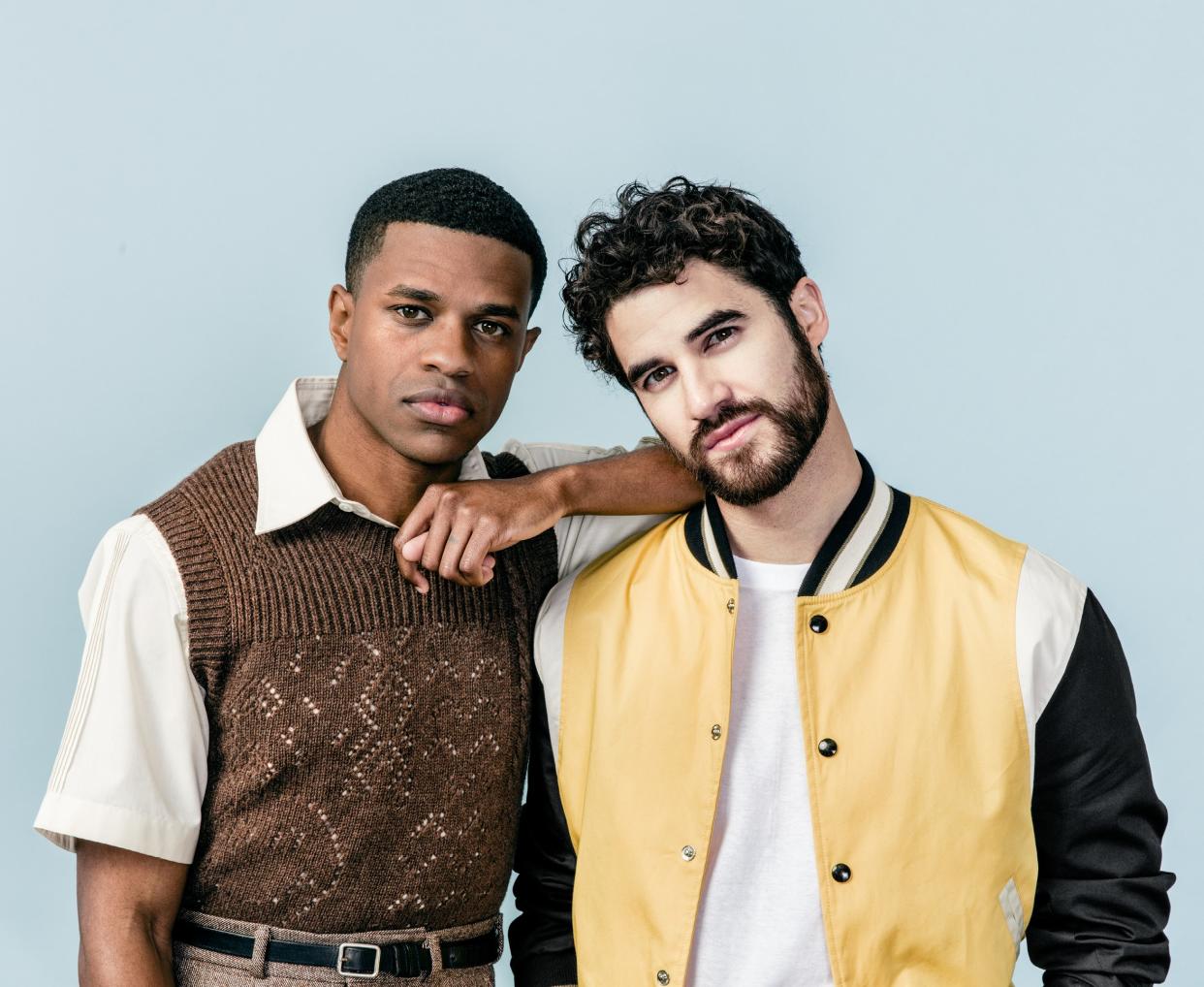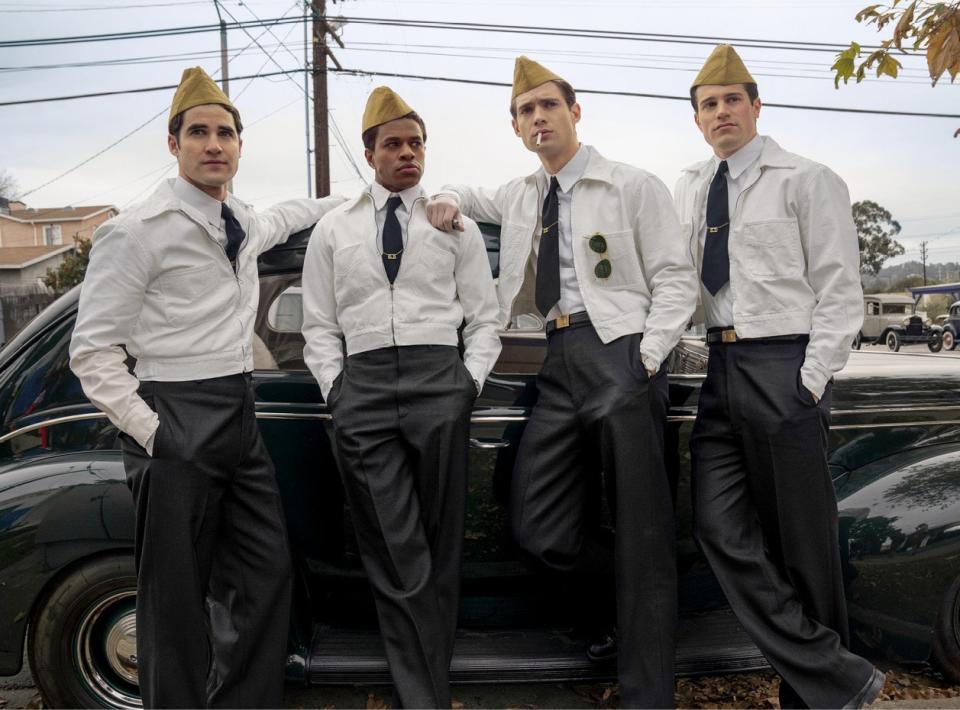Meet the Compelling Young Stars of Ryan Murphy’s Hollywood

Somewhere out there in the cloud—or perhaps on a forgotten bit of Netflix B-roll—there’s a recording of David Corenswet, Jeremy Pope, and Darren Criss, the three young stars of Ryan Murphy’s new limited series, Hollywood (Netflix), performing an impromptu off-script soft-shoe tap routine. “We were hoping we were going to have a musical number, so we choreographed our own,” remembers Corenswet, a native Philadelphian whose stage-actor dad raised him on a diet of classic movie musicals. “I think we made a good pitch for our own spin-off show?” (Corenswet was unable to make Vogue’s shoot for this story due to the outbreak of COVID-19.)
In the meantime, there’s Murphy’s latest (with cocreator Ian Brennan), his first soup-to-nuts endeavor with Netflix. He calls it a “love letter to old Hollywood,” a lighthearted revisionist history that poses a provocative question: What if the minorities, women, and queer people whose stories and contributions have always gotten short shrift had been allowed to shine in their industry’s so-called Golden Age? Murphy calls this speculative genre “faction,” a mix of fact and fiction in which made-up characters intersect with historical figures: Hattie McDaniel, Anna May Wong, Rock Hudson. The last, whose death from AIDS in the mid-’80s shook Hollywood, is a particular touchstone. “What happens if Rock Hudson is out of the closet and successful in the 1940s?” Murphy wonders.
In this alternate universe, a very young Hudson (Jake Picking) falls in love with a gay, black male prostitute named Archie (Pope), who is actually a down-on-his-luck screenwriter. Archie works for Ernie (Dylan McDermott), who runs a gas station as a front for an industry-facing prostitution ring. (It’s not dissimilar to the operation Scotty Bowers describes in his 2012 memoir Full Service.) Archie’s coworker Jack (Corenswet) is his straight, white foil: an aspiring actor who gets his big break when a client, an aging silent-film starlet named Avis (Patti LuPone), hooks him up with a contract at her husband’s studio. (“She didn’t mind throwing in one-liners” during sex scenes, says Corenswet, “some at my expense, some very complimentary!”) Meanwhile, Criss, who is half Filipino, plays a biracial director whose ability to pass as white affords him opportunities denied his Asian peers.

“It’s fun, naughty, and kind of zany,” says Criss, a Murphy veteran (Glee, American Horror Story, and The Assassination of Gianni Versace: American Crime Story). At 33, he’s the trio’s elder statesman, while Corenswet and Pope, like their characters, are Hollywood greenhorns. Corenswet, 26, a lantern-jawed Juilliard grad whom Murphy compares to Leonardo DiCaprio, had a breakthrough last year in The Politician. (“Breakthrough implies there’s something on the other side,” he demurs. “I relish every moment on set, assuming I’ll never get another.”) For Pope, 27, an Orlando-born, twice Tony-nominated Broadway star with smooth, matinee-idol good looks, Hollywood is only his second screen-acting credit.
Of the three male leads, it’s Pope—who in many ways identifies with Archie—for whom Hollywood’s revisionist premise hits closest to home. He describes being a young musical-theater student in New York City, suddenly made all too aware that leading roles for black actors were few and far between. When Murphy, a fan of Pope’s Broadway work, approached him, the actor knew what to ask: “We’re talking about this black gay writer in the ’40s. Are there going to be people in the writers’ room who represent that voice?” There were, and his rapport with Corenswet and Criss was another boon. “We talked music, we talked food, we began immediately to soft-shoe our way through life,” Pope effuses. “Ryan gives all types of artists a lane to drive in.”
Originally Appeared on Vogue

